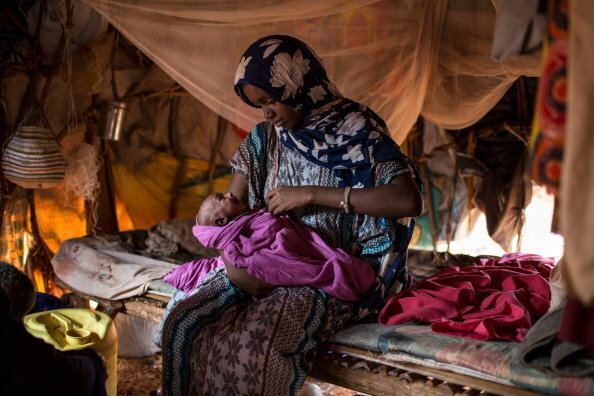
Report highlights 2 Egyptian projects among major clean energy ventures in N.Africa
A report by Energy Capital & Power highlighted two Egyptian projects – Suez Wind Power ...

The World Food Program (WFP) set out a new call of urgent need for $300 million to contain the devastating impact of the coronavirus (COVID-19) which may push an additional 10 million of the world’s children into acute malnutrition.
The WFP is in need for the funds to scale up its response to prevent and treat acute malnutrition and improve nutritious diets of children.
Acute malnutrition is caused by inadequate food consumption or illness, or both, resulting in sudden weight loss that, if untreated, can lead to death.
The WFP estimates that the number of young children suffering from this life-threatening form of undernutrition could increase by 20 percent as a result of the COVID-19 pandemic.
The virus can have a devastating effect on small bodies already weak from poor nutrition. At the same time, the pandemic is having a ruinous effect on vulnerable families relying on a daily wage or a remittance.
COVID-related lockdowns and movement restrictions are severely undermining livelihoods, exacerbating existing threats like conflict and weak health systems, making it especially hard for families in poorer nations to afford a nutritious diet.
“If we fail to act now, we’ll face devastating loss of life, health and productivity in future generations. Getting nutrition right today will determine whether the consequences of COVID-19 for children will be felt for months, years or even decades to come,” says Lauren Landis, WFP’s Director of Nutrition.
This year’s Global Nutrition Report highlights the inequalities inherent in nutrition, with stunting and wasting being most prevalent amongst the poorest communities. Malnourished children, especially those under five years of age, are at risk of being among the primary victims of the pandemic and its socio-economic fallout.
Twenty-two million children under the age of five and pregnant and nursing mothers rely on WFP to provide them with specialized food and micronutrients for the prevention and treatment of malnutrition.
WFP is working with governments to monitor populations vulnerable to COVID-19, adapting nutrition support where required. WFP is also working to ensure production of specialized nutritious foods is not disrupted by trade restrictions and is using its deep-field presence to pass information on COVID-19 to communities beyond the reach of fragile health systems.
A report by Energy Capital & Power highlighted two Egyptian projects – Suez Wind Power ...
The opening concert of the Annual Meeting 2025 in Davos-Klosters will address the pressing issues ...
Juhayna Food Industries proudly announced that its agricultural arm, El Enmaa for Agricultural Development, has ...


اترك تعليقا